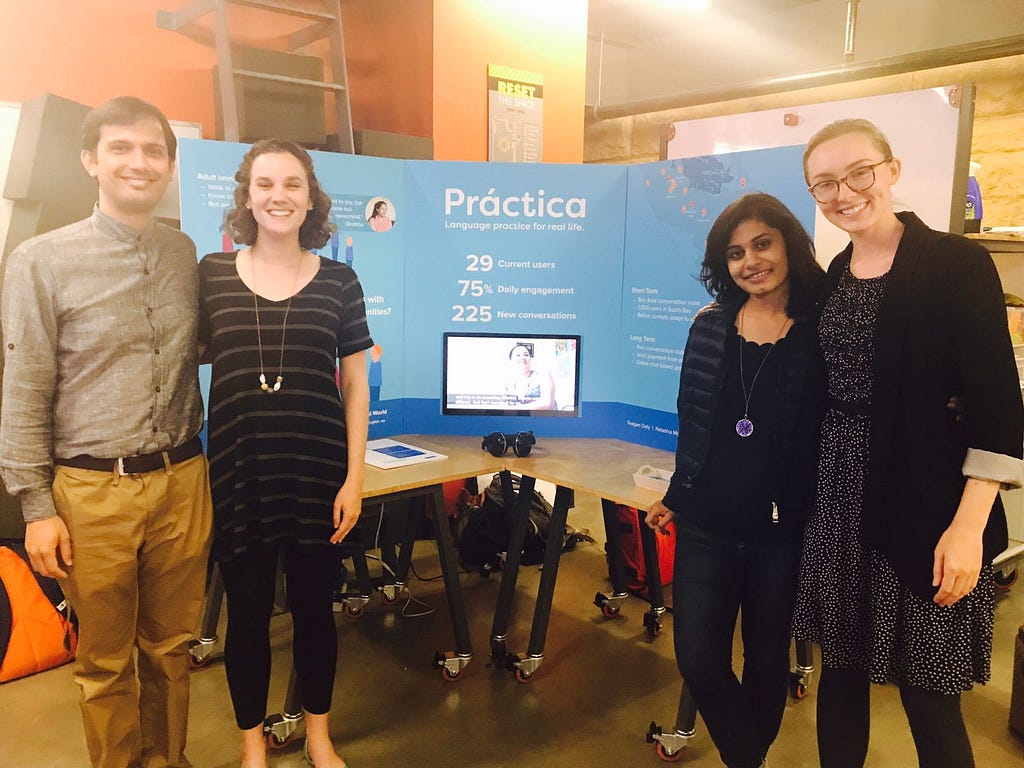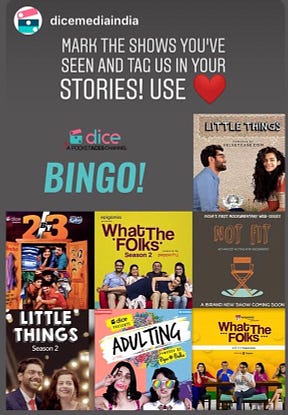| Last visit was: 24 Apr 2024, 17:10 |
It is currently 24 Apr 2024, 17:10 |

Customized
for You
Track
Your Progress
Practice
Pays
| FROM Bschooladmit20 - Current Student: The Ties That Bind |
 Don’t tell me what to do Continue reading on P.S. I Love You » |
| FROM Bschooladmit20 - Current Student: Delicate |
 I admire your fearlessness in love I hold your heart in wonder Don’t you worry or hurt? A beat Hesitant Letting you in is not easy A pause But I love the way you see me I’m learning leaning burning breathing letting go blurring breaking boundaries Free. |
| FROM Bschooladmit20 - Current Student: Delicate |
 I admire your Continue reading on P.S. I Love You » |
| FROM Bschooladmit20 - Current Student: Love: On Finding, Falling, Keeping and Leaving It |
Delicate ? I admire your fearlessness in love I hold your heart in wonder Don’t you worry or hurt? A beat Hesitant Letting you in is not easy A pause But I love the way you see me I’m learning leaning burning breathing letting go of boundaries blurring breaking Free. Homecoming  Don’t tell me what to do You made me I am not you You raised us You are not my home Now Let me go Your fears Once rang in my ears They are not mine It’s time I made New mistakes And when I get lost Don’t find me Let me look For myself And find my way back To you Insta-Independent Woman ?  Take the time To find you But don’t run out of it A ticking biological clock Be easy on yourself But not too easy Like- don’t get fat A balancing act Taught to look And sound pleasing But don’t be afraid To go after what you want Don’t hold back Stay true to you Nails done, hair in place Wearing someone else’s face Self-Preservation  You worry about preserving your sense of self When the women around you are so defined by their relationships to men You are more than a wife, daughter, mother At first they asked you when you would marry Now they want to know when you will give them a child A rented womb Someone once told me they were happy they didn’t let their daughter work abroad Because she would struggle to integrate back into society after developing a sense of self She took pride in clipping her wings before she could learn to fly Another woman told me that she was glad her son was smart enough to marry a woman of her choosing That would never challenge him but would take pleasure in supporting him She took pride in preserving her sons ego instead of his mind You worry about bleeding color slowly Always expected to put everyone else’s needs before your own Sacrifice is not always the highest value I won’t let you define me. Dirty Little Secret  Tense neck A lazy sense of urgency Am I doing enough? For what? Scared to think A dark thought Will it haunt me? Who’s watching? Limited indulgence Quantified, a wary luxury Do i deserve this? Who does? Grateful but guilty Earning it, but not enough Life isn’t fair In my favour? Eager to please But no one notice me If I pretend I don’t have it Do I get to keep it? |
| FROM Bschooladmit20 - Current Student: Stanford: An Honest Take |
Stanford: Beyond the Brand I was embarrassed by the undergraduate institution I went to. I wanted to prove that I was better than the brand of my school: smarter, more able. I worked on side projects instead of going to class, and then enrolled at Oxford & then Cambridge. I did two Masters in two very different fields in the space of two years. But it wasn’t enough. I was still obsessed by the idea of studying at a phenomenal US university; of having the freedom to choose what I studied. I chose to do an MBA at Stanford because I loved the flexibility of the curriculum. You could take classes in finance and economics, and also design thinking and machine learning, at the same time. I wanted to learn as much as I could in these two years; make up for lost time. My first year was transformative: but not in the ways I had anticipated. Having world class professors cover cutting- edge content in a classroom doesn’t change the way you learn.The brand of your school is absolutely meaningless. As in any institution, you only get out what you put in. You can take the most phenomenal classes and be left feeling uninspired, unless you make the time to really immerse yourself.The real magic of being here is being given the opportunity to both rediscover and create yourself. You’re quickly forced out of your comfort zone. The pace at which the community moves is overwhelming. It’s not just that anything is possible here: you quickly realise that your wildest ideas are already being translated into reality. And then you learn the real secret: there are no secrets, rules or right answers. You haven’t missed out if you didn’t go to a great school, or don’t have a fancy brand on your resume. External validation only leaves you with a sense of emptiness. You already have and know everything you need. The only constraint is your own mindset. Manage yourself. Use your time and energy well. Build. Stanford: The Power of Vulnerability  I’m okay. I’ll be fine. I’m always fine. I’ve grown so used to telling myself that I’m “creating” myself, that the past has no hold on me. I’m comfortable moving across countries, industries and roles. I’ve done it before. How hard can it be this time around? But I’m shaken. I haven’t realized how comfortable I’d grown. I was sheltered; I’d built a home and family in London. The pace of life: the constant flood of energy, information, ideas at the GSB is overwhelming. I haven’t accounted for the transition to being a student again: I’m thrown by the volume of assignments and readings, the social scene, the career opportunities. You will make your best friends in moments of vulnerability.I tell myself I’m tough. I’m extroverted. I thrive on change and challenge. I go out every night, I’m vocal in class, I travel every weekend: I’m visible. I try and get to know 300 people in ten weeks. But I’m spinning. I’ve lost my center. I get so swept up in the wave that is life at the GSB, that I forget who I am, what I like, how I want to spend my time. No one told me that I can be lonely while constantly surrounded by people. The first time I ask for help is when I truly begin to rediscover my feet. I build my community by admitting my mistakes, my flaws, my worst fears. Anything goes here. There is no need to hold back. I begin to see how much everyone around is struggling: in ways I can’t begin to guess or comprehend. I begin to see that showing weakness is a sign of strength. You will make your best friends in moments of vulnerability. The GSB is a surprising place. You’re not okay. No one is okay. You can’t control everything that happens. But you will make friends in unexpected places, in unexpected ways. The best relationships will be the ones you could never have predicted. Take your time. What I Learned as an Stanford MBA Student: The First Year  The first year of the MBA program has been a whirlwind. I moved to a different country, changed roles, co-founded a company and met some unbelievably amazing people. But I also struggled with adjusting to being a student again, building a new home, career and circle of friends. Looking back, I’m extremely grateful for both the opportunities and the challenges I faced. In the hopes of making the journey easier for those of you that will be enrolling in business school shortly, these are my key take-aways from the past nine months:
Stanford: Startup AdventuresI worked on two very different startups, with two very different teams, during my MBA at Stanford.   One team was focused on building a language learning platformfor first-generation immigrants, in order to help them build their confidence and speak English more frequently. We were based at Stanford’s d. school, focused deeply on need-finding using design thinking principles, and had two product designers and a computer science major on our team. The other team’s goal was to build a non-invasive tool to help glaucoma patients measure their eye pressure, in order to proactively manage their condition, and prevent blindness. We were based at Stanford’s Engineering School, had two electrical engineers, a patent-holder and professor, and an economics major on the team. I am grateful for the diversity of experience and learning, but am also struck by how transferable the lessons from these very different experiences are. These are my key takeaways: Start somewhere: your product will never be ready The starting point for both teams was different: on the first team, we had a blank sheet of paper, and began by defining user need. On the second team, we had a patented technology that we were trying to commercialise. Our level of fear, uncertainty and excitement differed based on our stage of development. However, surprisingly, this didn’t make as much difference as I thought it would to our day-to-day activities- except when it came to raising money. You’re always going to have to continuously iterate and improve your product, no matter the stage you’re at.The challenge is ensuring you have enough time and resource to be able to fail fast, and developing a clear set of priorities of what you want to change and build over time, based on user feedback. Defining our minimum viable product was often one of the most challenging exercises we undertook at every stage. Empathise with- but also delight- your customers Both teams used design thinking processes to understand consumer need, prototype and iterate, given that we were building consumer-focused software in both cases, and were aiming to help our users create new habits, albeit in very different contexts. We were often surprised at how wrong our initial assumptions about our target consumers were, when we did in-depth consumer interviews to gain insight into their pain-points. You have to be able to develop empathy with your users, and put yourself in their shoes when you’re trying to develop an understanding of their needs, or get feedback on your product. However, you also have to retain the ability to deviate from what they tell you they want- and surprise them- in the hope of delighting them- because they don’t always know what they want or need until they see it. Great processes are easier to replicate than great cultures Both the groups I worked with very extremely high-functioning. The diversity of skill-sets and perspectives, based on education, professional experience and nationality, greatly enhanced our productivity. However, the same factors also sometimes made seemingly straightforward tasks, such as scheduling interviews and gathering customer feedback, more difficult. We worked through this by agreeing upon team norms and values (such as being transparent, asking for and giving regular feedback, asking for help when needed) upfront. The importance of regularly discussing, repeating and reinforcing these principles will stick with me. I also learned the importance of ensuring that the team had a shared vocabulary, was unafraid to ask ‘basic’ questions, and challenge the direction we were heading in: most of our mistakes were a direct result of miscommunication or ego. People management matters as much as product management At the start, I was insecure about my inability to code, given the strong engineering talent on the second team- but I quickly realised how much value I could add, through ensuring the team was working on a shared vision, that our work-streams were being actively managed and coordinated, and that we stayed aligned as a team across important and/or difficult decisions. I was also the spokesperson for our team, while working with external stakeholders. Being a great verbal and written communicator is a highly underrated skill-set. Being able to read, motivate and manage people matters as much, if not at times more, than the product you’re building.You have to be able to influence stakeholders at every stage: you’re constantly selling your idea to existing and new customers, investors, potential hires and your team. Rockstar employees will align around a compelling mission Both ventures had an ambitious mission- this also ended up being an importance force in attracting great people, and allowing us to stay aligned. If you begin by building a stellar team, who’s bought into the company’s mission, you can work together to execute on all the basic steps a startup needs to follow- such as choosing a target market, building and testing prototypes, and experimenting with business models. However, if you’re unable to motivate and align your team, it doesn’t matter how great your idea or product is. Feedback is a gift: you’re a work in progress If you can’t manage yourself, you can’t manage others. Being able to see yourself from a distance, continuously learn, hire for or delegate your weaknesses, and staying unemotional about your work matters. Your product will always be a work in progress: so will you.We set up quarterly team feedback sessions for both teams: and I was always impressed at how much I learned about myself and others from these. These sessions also greatly helped build relationships within the team. They both helped clear the air when necessary, and build trust. Ultimately, whether the companies that we built last or not, our relationships will. What I Learned as a Second Year Stanford MBA Student  Doing an MBA is like drinking from a firehose. You will have more opportunities- in terms of internships, jobs, classes, friendships and travel- come your way than you can imagine. The two years are a gift. But learning what options to ignore, and what to chase, is an art.I’m incredibly grateful to have had the chance to study at Stanford’s Graduate School of Business. I’ve learned more in the past 18 months, professionally and personally, than I thought was possible. These are my key takeaways on making the most of the MBA program. Focus: pick a topic, sector, person, question Build a brand- or rebrand- particularly if you’re looking to change geographies, functions or industries. Use that lens to choose your classes, internships and club leadership experience. Once you’re known as the ‘fill in the blank’ person, you’ll start getting opportunities passed your way, without you having to do any of the ground work. Don’t underestimate how amazingly thoughtful + well connected your classmates are. Don’t forget the professors Invest in your coursework: this is your chance to build a relationship with some stellar thought leaders. Take your professors out for coffee or lunch: if you can, do a research project or write a paper with them. This gives you the incredible ability to to call up or meet whoever you want, in order to answer a question of your choosing. Doing an independent study on the rapidly evolving digital media landscape in India with Stanford’s ex-Dean was one of my most professionally meaningful experiences at the GSB. Get some real-life work experience on the side It’s hard to truly absorb everything you’re learning, no matter how phenomenal the classes or speakers, until you try and apply it yourself. I wouldn’t have gotten half as much as I did from the program, if I hadn’t worked on startups and done a second internship. Not only does this allow you to develop practical skills: this is an entirely risk-free time. You can be as experimental as you want with your side projects. I worked on two wildly different startups, with two wildly different teams*, and loved having the chance to learn from both. See yourself from a distance You will be given the chance to reflect, ask yourself what you truly want to do with your life, and develop self-awareness, through your classes, workshops and classmates. Don’t be afraid to be vulnerable. Ask your peers for feedback regularly: they can often see your strengths and weaknesses more clearly than you can. I had the chance to deliver a TALK (a GSB institution, where every week, a classmate delivers a highly personal 30 minute reflection of the key events that have shaped them, to hundreds of other classmates). It was incredibly difficult to write and deliver, and painful at times, but the event will undoubtedly be one of the first things I will remember ten years down the line.This community will perhaps be the most supportive + collaborative one that you will ever experience. Let yourself fall: you will be caught.Organise a trek, conference or trip I couldn’t understand why anyone would want to organise a trip or conference, given all the administrative hassle associated with the process, until I Co-Chaired Stanford’s Future of Media Conference this year. The logistics were definitely as painful as I’d expected, but the upside, in terms of the lessons I learned around teamwork, branding, facilitation and operations was so much greater. Travel, host dinners and go out Make room for spontaneity, and to truly have fun. You don’t have to plan every day. Your classmates are the biggest gift of these two years. Try and get to know people that come from very different backgrounds. You will learn more from them, than any classroom. They will change the way you see the world, and yourself. You’ve no doubt already heard that you will make friends that will last lifetime. This is true. But don’t forget to take an interest, and be generous + kind to the people you don’t know too. Build the community you want to be a part of. Don’t follow the herd Ultimately, each one of your classmates will have a unique experience, based on the choices they make. You can’t escape FOMO, but stay true to yourself. Spend your time the way you want to. Invest in what you consider meaningful. No one has the answer, because there isn’t one. — **One team was focused on building alanguage learning platform for first-generation immigrants, in order to help them build their confidence and speak English more frequently. The other team’s goal was to build a non-invasive tool tohelp glaucoma patients measure their eye pressure, in order to proactively manage their condition, and prevent blindness. What I Actually Learned from the Stanford MBA  Most people will tell you that the real value of business school is not derived from the classroom: it’s all about the people. I heard this over and over again through the application process. But I didn’t understand what it really meant. When I was accepted into Stanford’s MBA program, I was grateful. I knew that my classmates would be phenomenal. I was eager to meet these 400 rockstars, and learn from them. I had no idea what was in store for me. They say business school is ‘transformational’. I was skeptical of this at first: but I have to admit, I am a different person at the end of an incredible two years. I’m more practical, and less idealistic. I’m more productive and adventurous. I’m more willing to try new things and fail. Perhaps most importantly, I have a much deeper understanding of my self and my strengths and weaknesses. And I can see that my class- on average- as a whole is more well-rounded, able to read people and build relationships better. I’m not sure if we’re better ‘leaders’ or ready to ‘change the world’, but we are definitely more equipped to manage ourselves and our own lives.What happened to us? We changed. The exposure to a mind-boggling variety of companies at different stages, industries and business models, through case studies, guest speakers, events, conferences, internships, my own classmates and independent studies definitely played a role. I have a sharpened appreciation for the importance of networks, communication skills and branding. But I also have to attribute this to the community we built. The real magic of business school comes from being in an environment where an incredibly diverse group dedicates all of their time and energy- personally, professionally and socially- to building a community that will last a lifetime.We were forced to start from scratch, and build a new set of relationships, just as we’d grown comfortable in our old lives: with our careers, our partners, our friends, our cities. We moved from all over the world, and lived in dorm rooms with people we’d never met before, and adjusted to being students again. We were given a blank sheet of paper in our mid to late twenties- a rare gift- and told that we could rethink the choices we’d made. Moreover, we were given the resources to do it- through world-class coaching, facilitated peer groups and classes. This forced some deep self-inspection and reflection: when you’re allowed to second guess yourself, you do. In my case, after spending five years doing impact investing in London, I will be working for a media startup in Mumbai after the MBA. We also had to adjust to an exceedingly social environment. Every person seemed like they were living their best life, all the time, at the start. I was strongly reminded of the power of herd behaviour, exclusivity and status. And then of course, there was all the travel, dinners, parties. Pure, unadulterated fun, at a scale that I perhaps won’t ever get to repeat again, as often. But over time I also deeply and truly got to know people from all over the world: what drives them, what’s shaped them. And we learned to both fit in and stand out: to choose who we wanted to be friends with, what groups we wanted to be associated with, what mattered to us, and how we wanted to be known and remembered. And I think that this is the secret: the MBA gives you the chance to develop a deeper understanding of yourself, and the people around you. You’re given the opportunity to see and test multiple ways of living. You ask for and give help. And when you figure out what’s right for you, you’re more able to manage yourself. You can’t manage other people if you can’t handle yourself.I know this is only the beginning of a long journey- both in terms of developing self-awareness and control- and getting to know my classmates. I’m so grateful to have spent two years dedicating myself to it. Congratulations to the Class of 2018. |
| FROM Bschooladmit20 - Current Student: Immigrant |
 I don’t fit into your neat little boxes of class/status You struggle to place me in your well-rounded circles For once, my hometown, school family name do not resonate Am I wild? Can I be tamed? Silently, I enjoy your polite discomfort I choose to remain anonymous I won’t play but I am well-versed in this game |
| FROM Bschooladmit20 - Current Student: Poor Little Rich Kid |
 You can buy luxury, privacy and your friends too But the more you spend the more you isolate You don’t ever need to ask for help- a hand with the luggage, a place to crash, a ride It’s all given to you Can you ever relate? You inhabit a different world -sometimes lonely- you know they watch you with envy this is not a fantasy/its your reality You begin to think maybe you deserve it? they’ll tell you what you want to hear always eager to please You can have the world but not the truth |
| FROM Bschooladmit20 - Current Student: The Power of Vulnerability |
 You are often so strong but know this: you don’t have to be Self-reliance is a virtue | make room for vulnerability | Your truest/deepest friendships will be built when you ask for (not offer) help It’s only when you admit your weaknes -flaws-insecurities- that you reveal yourself |
| FROM Bschooladmit20 - Current Student: Immigrant |
 I don’t fit into your neat little boxes of class/status You struggle to place me in your well-rounded circles For once, my hometown, school family name do not resonate Am I wild? Can I be tamed? Silently, I enjoy your polite discomfort I choose to remain anonymous I won’t play but I am well-versed in this game Immigrant was originally published in Lit Up on Medium, where people are continuing the conversation by highlighting and responding to this story. |
| FROM Bschooladmit20 - Current Student: Slow Burn |
 i begged you to slow down. i wasn’t ready to hurt again too recently burnt -we flickered- protecting myself from the flame i melted a slow burn into liquid i sink | quicksand | pull me in |
| FROM Bschooladmit20 - Current Student: Slow Burn |
 i begged you to slow down. i wasn’t ready to hurt again too recently burnt -we flickered- protecting myself from the flame i melted a slow burn into liquid i sink | quicksand | pull me in Slow Burn was originally published in Lit Up on Medium, where people are continuing the conversation by highlighting and responding to this story. |
| FROM Bschooladmit20 - Current Student: What’s It Like Being Back? |
 Everywhere I go, people sympathize with me when I tell them I’ve moved back to India after living abroad for ten years: whether it’s at a store, party or work. Across the board, people lean in, curious: “what’s it like being back? How are you adjusting? Poor you, it must be so hard”. Or they laugh: “are you crazy? Why would you choose to be here?” I can’t say this often enough: it’s great being back. As anyone that knows me will tell you: I was strongly reluctant to move back initially. I was worried about the quality of life, work culture, being a working woman in a regressive society. But I’ve been positively surprised. Things have changed dramatically in Mumbai over the past ten years. Yes, the traffic in Mumbai is terrible: but it’s terrible in LA, London, NYC, and every other major cosmopolitan city. Yes, the work culture differs: people can be less proactive and need more hands-on management. You have to repeat yourself more often, and make granular decisions: but they’re also more hungry to learn, earn, do: and they work harder. Yes, the lack of personal space is frustrating: but it’s beautiful that so many people truly care about you. I do struggle more here: I work harder. I worry about the air I breathe, and the commute is exhausting. The pay is worse. But I’m also leading the web series division of a fast growing media startup in India. I’m not sure I would have been able to do the same work, at the same pace and scale anywhere else. I get to tell untold stories, to a quickly growing local and foreign audience, that’s hungry for higher quality, relatable content. Global platforms and audiences are increasingly keen to hear what we have to say. There’s a new crop of creative talent clamoring to build a more transparent, meritocratic culture. When did we have such access to the world stage before? What about the ‘backwardness’ of society? Or how women are treated? Admittedly, my perspective is highly urban, privileged and skewed: but personally, I’ve been pleasantly surprised by how women are treated both at work and home: I’ve honestly faced much more subtle and covert sexism abroad. Of course, there are serious problems here. But it’s more in your face, more blatant: and therefore in some ways both more frustrating, but easier to pinpoint and tackle. Every place has its drawbacks: I’ve lived in London, Palo Alto, Boston, Athens and San Francisco over the past ten years. The air is cleaner, but people are more lonely. It’s harder to connect and be truly known. There are advantages to living in a community-based culture, versus an individualistic one: I can see this as I grow older. Let’s highlight what we’ve built and the progress we’ve made. The constant comparisons and references to American culture: on the radio and on TV, in the way our companies are built and run, at our dinner tables and in our personal lives is almost sad. The colonial hangover is strong: people assume you must somehow know more or be ‘better’ because you’ve lived abroad. I’ve spent a significant part of the past five years increasingly frustrated at borders shutting and increasingly regressive immigration policies. I was in London when the Brexit vote when through and in California when Trump was President: but I do think this is a seriously positive opportunity for India. We can encourage our brightest minds and talent to move back, versus feel sorry for the people that do. Our generation has the chance to raise the standard of work, to set a new standard for how we want to live, be treated and treat others. We also get to shape how the world sees us: through the way we perceive and present ourselves. Our words and mindsets matter. I choose to be here. And I’m excited for what’s to come. |
| FROM Bschooladmit20 - Current Student: After Ten Years Abroad, What’s It Like to Live in India Again? |
 Everywhere I go, people sympathize with me when I tell them I’ve moved back to India after living abroad for ten years: whether it’s at a store, party or work. Across the board, people lean in, curious: “what’s it like being back? How are you adjusting? Poor you, it must be so hard”. Or they laugh: “are you crazy? Why would you choose to be here?” I can’t say this often enough: it’s great being back. As anyone that knows me will tell you: I was strongly reluctant to move back initially. I was worried about the quality of life, work culture, being a working woman in a regressive society. And yet, I’ve been so positively surprised. Things have changed dramatically in Mumbai over the past ten years. Yes, the traffic in Mumbai is terrible: but it’s terrible in LA, London, NYC, and every other major cosmopolitan city. Yes, the work culture differs: people can be less proactive and need more hands-on management. You have to repeat yourself more often, and make granular decisions: but they’re also more hungry to learn, earn, do: and they work harder. Yes, the lack of personal space is frustrating: but it’s beautiful that so many people truly care about you. I do struggle more here: I work harder. I worry about the air I breathe, and the commute is exhausting. The pay is much worse. But I’m also leading the web series division of a fast growing media startup in India. I’m not sure I would have been able to do the same work, at the same pace and scale anywhere else. I get to tell untold stories, to a quickly growing local and foreign audience, that’s hungry for higher quality, relatable content. Global platforms and audiences are increasingly keen to hear what we have to say. There’s a new crop of creative talent clamoring to build a more transparent, meritocratic culture. When did we have such access to the world stage before? What about the ‘backwardness’ of society? Of how women are treated? Admittedly, my perspective is highly urban, privileged and skewed: but personally, I’ve been pleasantly surprised by how women are treated both at work and home: I’ve honestly faced much more subtle and covert sexism abroad. Of course, there are serious problems here. But it’s more in your face, more blatant: and therefore in some ways both more frustrating, but easier to pinpoint and tackle. Every place has its drawbacks: I’ve lived in London, Palo Alto, Boston, Athens and San Francisco over the past ten years. The air is cleaner, but people are more lonely. It’s harder to connect and be truly known. There are advantages to living in a community-based culture, versus an individualistic one: I can see this as I grow older. Let’s highlight what we’ve built and the progress we’ve made. The constant comparisons and references to American culture: on the radio and on TV, in the way companies are built and run, at our dinner tables and in our personal lives is almost sad. The colonial hangover is strong: people assume you must somehow know more or be ‘better’ because you’ve lived abroad. I’ve spent a significant part of the past five years increasingly frustrated at borders shutting and increasingly regressive immigration policies. I was in London when the Brexit vote when through and in California when Trump was President: but I do think this is a seriously positive opportunity for India. Let’s encourage our brightest minds and talent to move back, versus feel sorry for the people that do. Our generation has the chance to raise the standard of work, to set a new standard for how we want to live, be treated and treat others. We also get to shape how the world sees us: through the way we perceive and present ourselves. Our words and mindsets matter. I choose to be here. And I’m excited for what’s to come. After Ten Years Abroad, What’s It Like to Live in India Again? was originally published in Hacker Noon on Medium, where people are continuing the conversation by highlighting and responding to this story. |
| FROM Bschooladmit20 - Current Student: How Do You Make a Great Show? |
 Making a show is an exhilarating, gut-wrenching, anxiety-inducing, chaotic, energizing and ultimately fun process. On any given day, you’re making tens- if not hundreds- of big picture and granular decisions from a creative, business and people perspective. Your role is to align, motivate, problem solve for and manage a hundred people with very different backgrounds and skill-sets, who’ve all come together for a short period of time to tell a great story. There will always be conflict and ego clashes, but the joy of watching all the myriad parts- script, acting, direction, editing, art, cinematography and music- all come together and fall into piece makes the journey more than worth it. My team* is aiming to build India’s premium long-form storytelling platform. We take pride in telling relatable, high-quality stories + building an open, meritocratic culture + treating our creators with respect. We currently have four writers rooms running, three shows going on the floor, a show in edit, and an extensive pipeline for 2019. We’re constantly learning: and we make mistakes all the time, but we try and actively learn + improve each time. These are my lessons so far: Choose carefullyDecide what stories you want to tell. As the content ecosystem in India explodes, it’s increasingly important to choose the space you want to be in: and how you plan to differentiate yourself. We try and tell the most authentic stories possible, by working with writers that have lived with their material. They’re deeply familiar with the stories because they have experienced it in some form themselves. We believe that bringing an honest voice and understanding of the world and characters being created can be game-changing. We deeply respect our creators, and are always open to all voices and perspectives. Value your writersWe’re obsessed with putting the story first. If you don’t have a great script, it doesn’t matter how talented the rest of your crew is: you’re not going to be able to tell a great story. Invest in getting the characters, structure and tone right. We run writer’s rooms to make the process collaborative and structured. We’ve found ensuring that our writers are writing consistently and brainstorming together raises the quality of the ideas and script. As with any team: we choose the composition of our writers room carefully. We run a highly selective process to ensure we end up 3–4 writers that can bring diverse perspectives to each room. We provide feedback at every stage of scripting : but particularly focus on the arc and beats: where the story gets shaped: and then the punch-ups, where the team is involved. Plan obsessivelyPre-production is the least sexy part of the process: but is absolutely crucial. Try and pull together a team that’s worked together before: on set chemistry and working dynamics matter. If the entire crew is new, it’s going to take some time before they can build trust and get used to a certain pace and style. Every set is different: pulling together teams of 60–100 that haven’t worked together before is tough. We’ve found working with multiple directors often helps: this allows people to articulate and align on a vision in advance. As in the writer’s room, the advance brainstorming and collaboration leads to a better product. The facesCasting is obviously fundamental. A great actor can truly bring a script to life: the wrong fit can destroy it. Make sure you’re clear on exactly what you’re looking for and why: there’s a lot of talent out there, and the choice can be overwhelming. Once you’ve made the casting decision: treat your talent well. Allow them to live with the script for a while, and jam with the directors and each other as much in advance as possible. Invest the time in making sure your primary cast and directors gel: its key that they form personal relationships as well as workshop together before the shoot starts. The shoot must go onThe environment on set matters. Let your director focus on the actors. Try and build a stellar team around the director so they can focus. Things will always go wrong: make sure you have a well-aligned team that’s ready to step in and put out the fires that will definitely arise. We usually have a couple of people on set from our team at different times, to make sure creative consistency and smooth execution are maintained. Tighten it upHaving a great script, talent and director is great: but the pace and structure of the story can make or break it. Once you have the right raw material in place: be both ruthless and creative on the edit. We give extensive feedback on every cut: good pacing and highlighting key moments can change an episode completely. The music also really matters: a soundtrack can transform a scene. It’s sometimes hard to recognize our third cuts versus our first ones of the same episode. Fans firstI always tell my team: there’s no point in making a great show if no one sees it. Plan your online and offline activities carefully: drum up audience interest through trailers, promos and behind the scene shoots. Make sure your show is placed on the right platform or channel. Know what your brand stands for, and what your audience wants. In the end, your show is only as good as what your audience thinks. We take engaging and listening to our audiences seriously: we want to create characters and stories that our community relates to and wants to engage with. We’re always looking for feedback, and the next great idea: reach out to us! Your approachAs a producer, given the constant- and sometimes crazy- demands on your time and energy, your mindset matters. Plan ahead, stay proactive and anticipate problems, invest in ensuring your team is constantly aligned and engage: make sure you always have a plan B. Flexibility is key: you will always run the risk of going over budget: find a way to make savings or reduce shoot time elsewhere on the fly. Your actors will fall sick, they might not get along, sometime they won’t show up: always maintain the relationship while solving the problem at hand. Your equipment might get damaged, or lost: have a backup. The accommodation or location might fall through: the art might not work. It happens. Find a way to meet your timelines anyway, while maintaining positive energy on set. In the end, what matters is that you manage yourself, so that you can lead the way for others. Raise the bar at each step. In the end, the production is just the backstory. Your audience will only see what you show them: make sure it’s great.
 This story is published in The Startup, Medium’s largest entrepreneurship publication followed by +426,678 people.Subscribe to receive our top stories here.  How Do You Make a Great Show? was originally published in The Startup on Medium, where people are continuing the conversation by highlighting and responding to this story. |
| FROM Bschooladmit20 - Current Student: Starry Night |
 You’ve waited to be here As golden in person as they seem on the outside -looking in- So untouchable — an almost inhuman glow But they grow dimmer as the night wears on You try to hold on. to touch. -the glitter rubs off- it was always just glue An emptiness in the room — tired panic behind the posturing When you take it off do you still keep shining? Starry Night was originally published in Lit Up on Medium, where people are continuing the conversation by highlighting and responding to this story. |
| FROM Bschooladmit20 - Current Student: Butterfly |
 I wait impatiently cocooned how long will this transformation take? promised beauty + wings + grace the breakthrough hurts no one told me the hard part wasn’t done suddenly free + so delicate this is what I always wanted but the allure comes at a price -bloom is fragile- it only lasts a few days Butterfly was originally published in Lit Up on Medium, where people are continuing the conversation by highlighting and responding to this story. |
| FROM Bschooladmit20 - Current Student: The Idiot’s Guide To Being a Bad Manager |
 Have you been feeling burnt out or stressed lately? Do you hate your job? Forget those self-help books. Consider taking out your frustration on your team instead. It’s much easier- and surprisingly therapeutic- to make their lives a living hell. Here’s how you can punish them for working for you: 1. Act like everything is urgent Pretend that the company has no priorities. Expect them to do everything at once. Set unrealistic timelines. Get frustrated when they’re missed. Get even more hassled when they don’t spend time on the right priorities in the first place. Tell them that you have limited bandwidth, and it’s unreasonable for them to ask you questions or review their work at every stage, for every project. Why can’t they prioritize better? 2. Keep changing the team’s strategy and direction Ideally, you shouldn’t set any direction at all. Don’t set team or individual goals. Better yet, don’t define their roles. Give them ad-hoc work through the year. Keep it coming, and ask them to continuously work harder and faster, with no breaks. When they burn out, question their ability to execute on the next important project. If they ask about the company or team’s strategy, tell them that you’re going to keep trying to do everything. Then reluctantly, set some unreachable goals for the year. Mid-way through the year, change your team’s direction without warning. If you really want to toy with them, don’t tell them you’ve changed your mind until they’ve already done the work. Keep them guessing. 3. Keep your communication vague Don’t articulate deliverables or show them what ‘good’ looks like. Get angry when they don’t understand what you mean, but don’t allow them to ask questions. Expect them to read your mind instead. When they update you, respond to the most insignificant point. Answer their questions with more questions. From time to time, simply ignore them. When they follow up, act confused or busy. On the other hand, set a high standard for communication from their end: demand precision, and pick on the slightest inconsistency. Ask them how they plan to succeed if they can’t communicate effectively. 4. Pretend you’re never wrong Hold them to an impossible standard, and humiliate them in public for their mistakes: but don’t apologise when you get it wrong. Showing humility is a sign of weakness. Instead, blame them for your mistakes. If they give you feedback, tell them they’re wrong. Question their loyalty, and tell them that everyone in the company questions their attitude. Tell them to complain less, and work harder.5. Take credit for their work Offer to lead every single project, and then step away, when the real work kicks in. Tell them you’re busy, and they should step up and learn to lead. If they fail, let them take the fall. It’s not your job to protect them: they need to toughen up. If they do manage to execute, take credit for their work. Ensure you are the face of all successful projects externally. Don’t thank or acknowledge your team when interacting with other teams or external stakeholders. Instead, put them down in front of other employees. Act like you manage to do a phenomenal job while still having a weak team, because you’re just that good. 6. Micromanage their time Don’t waste your time getting to know them. Their hopes, dreams and fears are meaningless. Instead of understanding, supporting and guiding them, micromanage their time. Don’t help set up any structure or processes or help with execution: just focus on the time your employees spend at work. Ensure they come in early, and leave late. Ask why them why they don’t work on weekends. Make them regret asking for leaves: work from homes are obviously out of the question. Face-time matters. 7. Don’t reward talent Don’t reward great work: or even acknowledge it. They’re just doing their job, after all. If you’re really forced to, offer them a bonus or raise. Then change your mind at appraisal time, without acknowledging the shift in stance. When they ask you what happened, ask them why they don’t have more empathy for the organisation’s needs. Why are they so self-centred? Isn’t doing great work enough for them? Remind them how lucky they are to work for you in the first place. Threaten to reduce or cut their role if they’re not more grateful. Insecure employees are easier to manage- and less likely to leave. You don’t want to nurture talent: you’re the star here, not them.Enjoy your reign of fear. Hopefully, you’ll end up scarring your employees to such an extent, that they’ll begin to believe this is normal. Good luck! |
| FROM Bschooladmit20 - Current Student: Thank you! So glad you enjoyed it |
|
Thank you! So glad you enjoyed it ? |
| FROM Bschooladmit20 - Current Student: The Idiot’s Guide To Being a Bad Manager |
 Have you been feeling burnt out or stressed lately? Do you hate your job? Forget those self-help books. Consider taking out your frustration on your team instead. It’s much easier- and surprisingly therapeutic- to make their lives a living hell. Here’s how you can punish them for working for you: 1. Act like everything is urgent Pretend that the company has no priorities. Expect them to do everything at once. Set unrealistic timelines. Get frustrated when they’re missed, or if your team drops the ball on the most minute tasks. Get even more hassled when they don’t spend time on the right priorities in the first place. Tell them that you have limited bandwidth, and it’s unreasonable for them to ask you questions or review their work at every stage, for every project. Why can’t they prioritize better? 2. Keep changing the team’s strategy and direction Ideally, you shouldn’t set any direction at all. Don’t set team or individual goals. Better yet, don’t define their roles. Give them ad-hoc work through the year. Keep it coming, and ask them to continuously work harder and faster, with no breaks. When they burn out, question their ability to execute on the next important project. If they ask about the company or team’s strategy, tell them that you’re going to keep trying to do everything. Then reluctantly, set some unreachable goals for the year. Mid-way through the year, change your team’s direction without warning. If you really want to toy with them, don’t tell them you’ve changed your mind until they’ve already done the work. Keep them guessing. 3. Keep your communication vague Don’t articulate deliverables or timelines or show them what ‘good’ looks like. Get angry when they don’t understand what you mean, or are unable to complete a task, but don’t allow them to ask questions. Expect them to read your mind instead. When they update you, respond to the most insignificant point. Answer their questions with more questions. From time to time, simply ignore them. When they follow up, act confused or busy. On the other hand, set a high standard for communication from their end: demand precision, and pick on the slightest inconsistency. Ask them how they plan to succeed if they can’t communicate effectively. 4. Pretend you’re never wrong Hold them to an impossible standard, and humiliate them in public for their mistakes: but don’t apologise when you get it wrong. Showing humility is a sign of weakness. Instead, blame them for your mistakes. If they give you feedback, tell them they’re wrong. Question their loyalty, and tell them that everyone in the company questions their attitude. Tell them to complain less, and work harder. 5. Take credit for their work Offer to lead every single project, and then step away, when the real work kicks in. Tell them you’re busy, and they should step up and learn to lead. If they fail, let them take the fall. It’s not your job to protect them: they need to toughen up. If they do manage to execute, take credit for their work. Ensure you are the face of all successful projects externally. Don’t thank or acknowledge your team when interacting with other teams or external stakeholders. Instead, put them down in front of other employees. Act like you manage to do a phenomenal job while still having a weak team, because you’re just that good. 6. Micromanage their time Don’t waste your time getting to know them. Their hopes, dreams and fears are meaningless. Instead of understanding, supporting and guiding them, micromanage their time. Don’t help set up any structure or processes or help with execution: just focus on the time your employees spend at work. Ensure they come in early, and leave late. Ask why them why they don’t work on weekends. Make them regret asking for leaves: work from homes are obviously out of the question. Face-time matters. 7. Don’t reward talent Don’t reward great work: or even acknowledge it. They’re just doing their job, after all. If you’re really forced to, offer them a bonus or raise. Then change your mind at appraisal time, without acknowledging the shift in stance. When they ask you what happened, ask them why they don’t have more empathy for the organisation’s needs. Why are they so self-centred? Isn’t doing great work enough for them? Remind them how lucky they are to work for you in the first place. Threaten to reduce or cut their role if they’re not more grateful. Insecure employees are easier to manage- and less likely to leave. You don’t want to nurture talent: you’re the star here, not them. Enjoy your reign of fear. Hopefully, you’ll end up scarring your employees to such an extent, that they’ll begin to believe this is normal. Good luck! The Idiot’s Guide To Being a Bad Manager was originally published in Hacker Noon on Medium, where people are continuing the conversation by highlighting and responding to this story. |
| FROM Bschooladmit20 - Current Student: The Bad Boss Guide: How to Scar Your Employees |
 Have you been feeling burnt out or stressed lately? Do you hate your job? Forget those self-help books. Consider taking out your frustration on your team instead. It’s much easier- and surprisingly therapeutic- to make their lives a living hell. Here’s how you can punish them for working for you: 1. Act like everything is urgent Pretend that the company has no priorities. Expect them to do everything at once. Set unrealistic timelines. Get frustrated when they’re missed, or if your team drops the ball on the most minute tasks. Get even more hassled when they don’t spend time on the right priorities in the first place. Tell them that you have limited bandwidth, and it’s unreasonable for them to ask you questions or review their work at every stage, for every project. Why can’t they prioritize better? 2. Keep changing the team’s strategy and direction Ideally, you shouldn’t set any direction at all. Don’t set team or individual goals. Better yet, don’t define their roles. Give them ad-hoc work through the year. Keep it coming, and ask them to continuously work harder and faster, with no breaks. When they burn out, question their ability to execute on the next important project. If they ask about the company or team’s strategy, tell them that you’re going to keep trying to do everything. Then reluctantly, set some unreachable goals for the year. Mid-way through the year, change your team’s direction without warning. If you really want to toy with them, don’t tell them you’ve changed your mind until they’ve already done the work. Keep them guessing. 3. Keep your communication vague Don’t articulate deliverables or timelines or show them what ‘good’ looks like. Get angry when they don’t understand what you mean, or are unable to complete a task, but don’t allow them to ask questions. Expect them to read your mind instead. When they update you, respond to the most insignificant point. Answer their questions with more questions. From time to time, simply ignore them. When they follow up, act confused or busy. On the other hand, set a high standard for communication from their end: demand precision, and pick on the slightest inconsistency. Ask them how they plan to succeed if they can’t communicate effectively. 4. Pretend you’re never wrong Hold them to an impossible standard, and humiliate them in public for their mistakes: but don’t apologise when you get it wrong. Showing humility is a sign of weakness. Instead, blame them for your mistakes. If they give you feedback, tell them they’re wrong. Question their loyalty, and tell them that everyone in the company questions their attitude. Tell them to complain less, and work harder.5. Take credit for their work Offer to lead every single project, and then step away, when the real work kicks in. Tell them you’re busy, and they should step up and learn to lead. If they fail, let them take the fall. It’s not your job to protect them: they need to toughen up. If they do manage to execute, take credit for their work. Ensure you are the face of all successful projects externally. Don’t thank or acknowledge your team when interacting with other teams or external stakeholders. Instead, put them down in front of other employees. Act like you manage to do a phenomenal job while still having a weak team, because you’re just that good. 6. Micromanage their time Don’t waste your time getting to know them. Their hopes, dreams and fears are meaningless. Instead of understanding, supporting and guiding them, micromanage their time. Don’t help set up any structure or processes or help with execution: just focus on the time your employees spend at work. Ensure they come in early, and leave late. Ask why them why they don’t work on weekends. Make them regret asking for leaves: work from homes are obviously out of the question. Face-time matters. 7. Don’t reward talent Don’t reward great work: or even acknowledge it. They’re just doing their job, after all. If you’re really forced to, offer them a bonus or raise. Then change your mind at appraisal time, without acknowledging the shift in stance. When they ask you what happened, ask them why they don’t have more empathy for the organisation’s needs. Why are they so self-centred? Isn’t doing great work enough for them? Remind them how lucky they are to work for you in the first place. Threaten to reduce or cut their role if they’re not more grateful. Insecure employees are easier to manage- and less likely to leave. You don’t want to nurture talent: you’re the star here, not them.Enjoy your reign of fear. Hopefully, you’ll end up scarring your employees to such an extent, that they’ll begin to believe this is normal. Good luck! The Bad Boss Guide: How to Scar Your Employees was originally published in Hacker Noon on Medium, where people are continuing the conversation by highlighting and responding to this story. |

|
|
||
|
Hi Generic [Bot],
Here are updates for you:
ANNOUNCEMENTS
Watch earlier episodes of DI series below EP1: 6 Hardest Two-Part Analysis Questions EP2: 5 Hardest Graphical Interpretation Questions
Tuck at Dartmouth
|